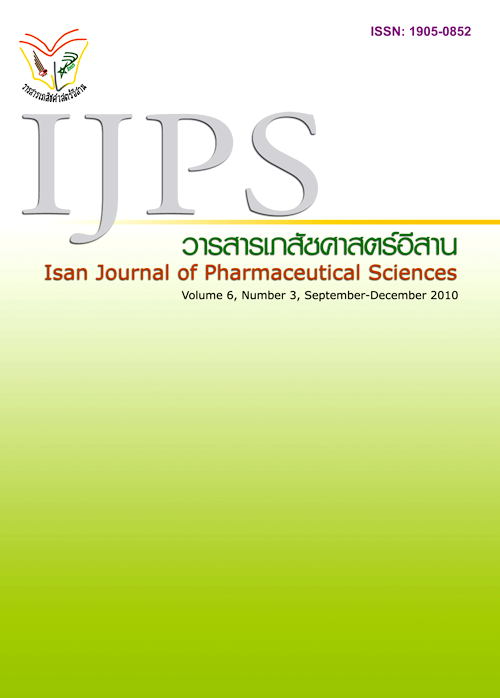Smoking Behavior and Attitudes Toward Smoking Cessation of Academic Staff in the 14th Region of the Ministry of Public Health
Main Article Content
Abstract
This cross-sectional survey research was aimed to determine the smoking behaviors and attitudes
toward the hazard effects from smoking and towards smoking cessation of male academic staffs. This study
involved 781 male subjects who worked in various schools of the 14th region of the ministry of public health
(Srisaket, Ubon Ratchathani, Yasothorn and Amnacharoen provinces). The result revealed that 21.8% of the
subjects were smokers. The overall level of attitudes toward the hazard of smoking among the subjects was
good with the mean score of 4.19+0.57 (total score of 5). Their attitudes toward the economic impact domain
were higher than those on the social, work performance and health impact domains, respectively. In addition, the result showed that the level of attitudes toward the hazards of smoking of the non-smoker subjects were higher than those of the smoker subjects with statistical significance (p-value < 0.001). Furthermore, it was found that types of school, marital status, family economic status, income, family relation, stress, alcohol drinking and being surrounded by smokers were statistically associated with smoking behavior (p-value < 0.05). Most current smokerswere psychologically addicted and the nicotine dependence was at low level at 41.2% and 63.6% respectively. The overall attitude towards smoking cessation was good with mean score of 4.01 + 0.57. The first four highest score was attitude towards economic impact. health impact, work performance and social impact respectively.
Article Details
In the case that some parts are used by others The author must Confirm that obtaining permission to use some of the original authors. And must attach evidence That the permission has been included
References
Henningfield JE, Slade J. 1998. “Tobacco-dependence medications: public health and regulatory issue” Food Drug and Law Journal. 53, suppl: 75-114.


